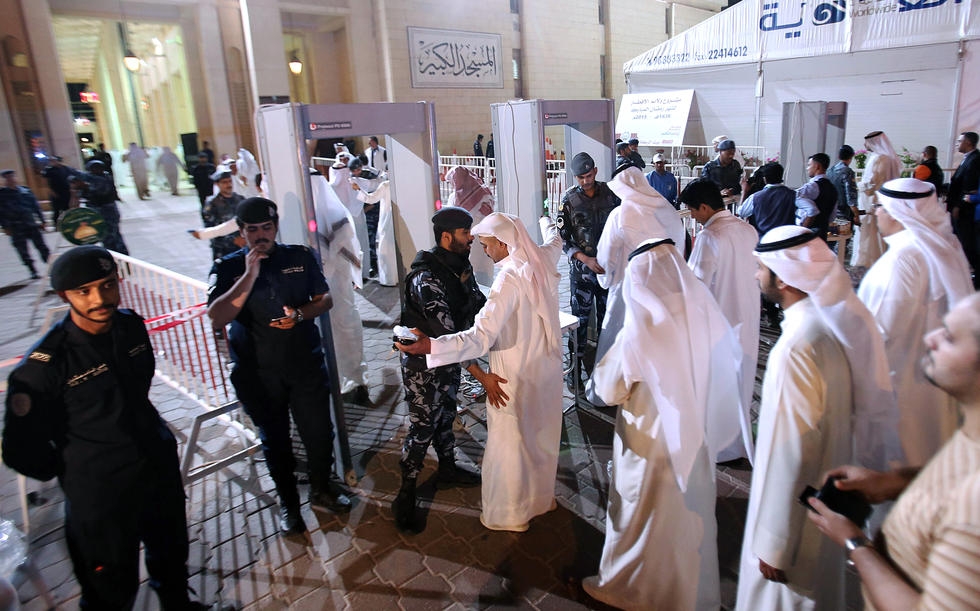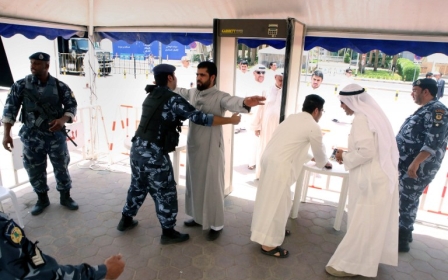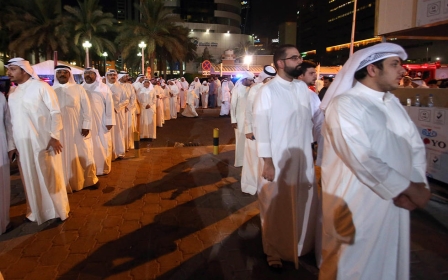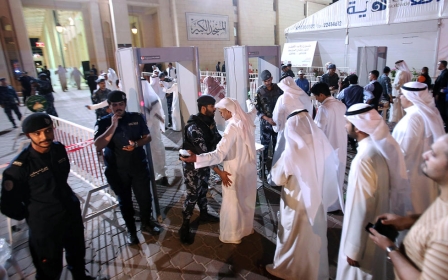Kuwait upholds death sentence for mosque blast ringleader

Kuwait's supreme court on Monday upheld the death sentence handed down to the main convict in the Islamic State (IS) group bombing of a Shia mosque that killed 26 people last June.
The court confirmed the sentence of capital punishment passed on Abdulrahman Sabah Saud, a stateless man who drove the Saudi suicide bomber to the mosque.
IS claimed responsibility for the attack on the Imam Sadiq Mosque in Kuwait City as it was filled with worshipers attending Friday prayers during the holy month of Ramadan. It is believed to be the first such sectarian attack in Kuwait.
The court also upheld jail terms of between two and 15 years for eight people, including four women, and acquitted 15 others including three women.
The court did not hear the appeals of five others - four Saudis and a stateless man - who had been sentenced to death in absentia by a lower court.
Under Kuwaiti law, sentences issued in absentia are not reviewed by higher courts until those convicted appear in person.
The four Saudi men still at large include two brothers who smuggled the explosives belt used in the attack into Kuwait from neighbouring Saudi Arabia. The fifth man is a stateless Arab.
Twenty-nine defendants, including seven women, had been charged with helping the Saudi suicide bomber attack a Shia mosque in the capital, which was the bloodiest in Kuwait's history.
An IS-affiliated group calling itself Najd Province claimed the bombing as well as suicide attacks on two Shia mosques in Saudi Arabia in May last year.
Najd is the central region of Saudi Arabia.
The Islamic State group considers Shia to be heretics and have repeatedly attacked Shia targets in the region.
In addition to driving the suicide bomber, Saud was also charged with bringing the explosives belt from a site near the border and aiding the bomber.
At his initial trial, Saud confessed to most charges, but later denied them all in the appeals and supreme courts.
Saud is reportedly a member of Kuwait's Bidoon community. The Bidoon, short for bidoon jinsiyya ("without citizenship"), are mainly stateless descendants of desert nomads and are considered illegal residents by the Kuwaiti government. They form a significant underclass in Kuwait and their lack of legal status leaves them vulnerable to human rights violations.
The death penalty in Kuwait is carried out by hanging, and to be implemented it requires the approval of the Gulf state's ruler.
Among the supreme court's main verdicts on Monday, the court upheld the commuting of the death sentence for the alleged IS leader in Kuwait, Fahad Farraj Muhareb, to 15 years in prison.
It also upheld the acquittal of Jarrah Nimer, owner of the car used to transport the bomber.
Courts in Kuwait have previously handed down several verdicts against IS supporters and financiers as well as foreign nationals accused of spying for Iran and Hezbollah.
In January, the pressure group Human Rights Watch warned that Hassan Hajiya, a Kuwaiti national, and Abdulreda Dhaqany, an Iranian national, both accused of spying for Iran and Hezbollah, had been sentenced to death without adequate legal representation.
The latest death sentance comes as British Foreign Secretary Philip Hammond visited Kuwait City on Sunday as part of a major regional tour.
The UK has long opposed the use of the death penalty by its allies, however, it was accused of dropping this commitment as it sought re-election to a United Nations human rights body in December.
After a de facto moratorium on the death penalty since 2007, Kuwaiti authorities executed five people in 2013. It is not known if Hammond raised the issue of the death penalty during his visit to Kuwait City.
Middle East Eye propose une couverture et une analyse indépendantes et incomparables du Moyen-Orient, de l’Afrique du Nord et d’autres régions du monde. Pour en savoir plus sur la reprise de ce contenu et les frais qui s’appliquent, veuillez remplir ce formulaire [en anglais]. Pour en savoir plus sur MEE, cliquez ici [en anglais].




